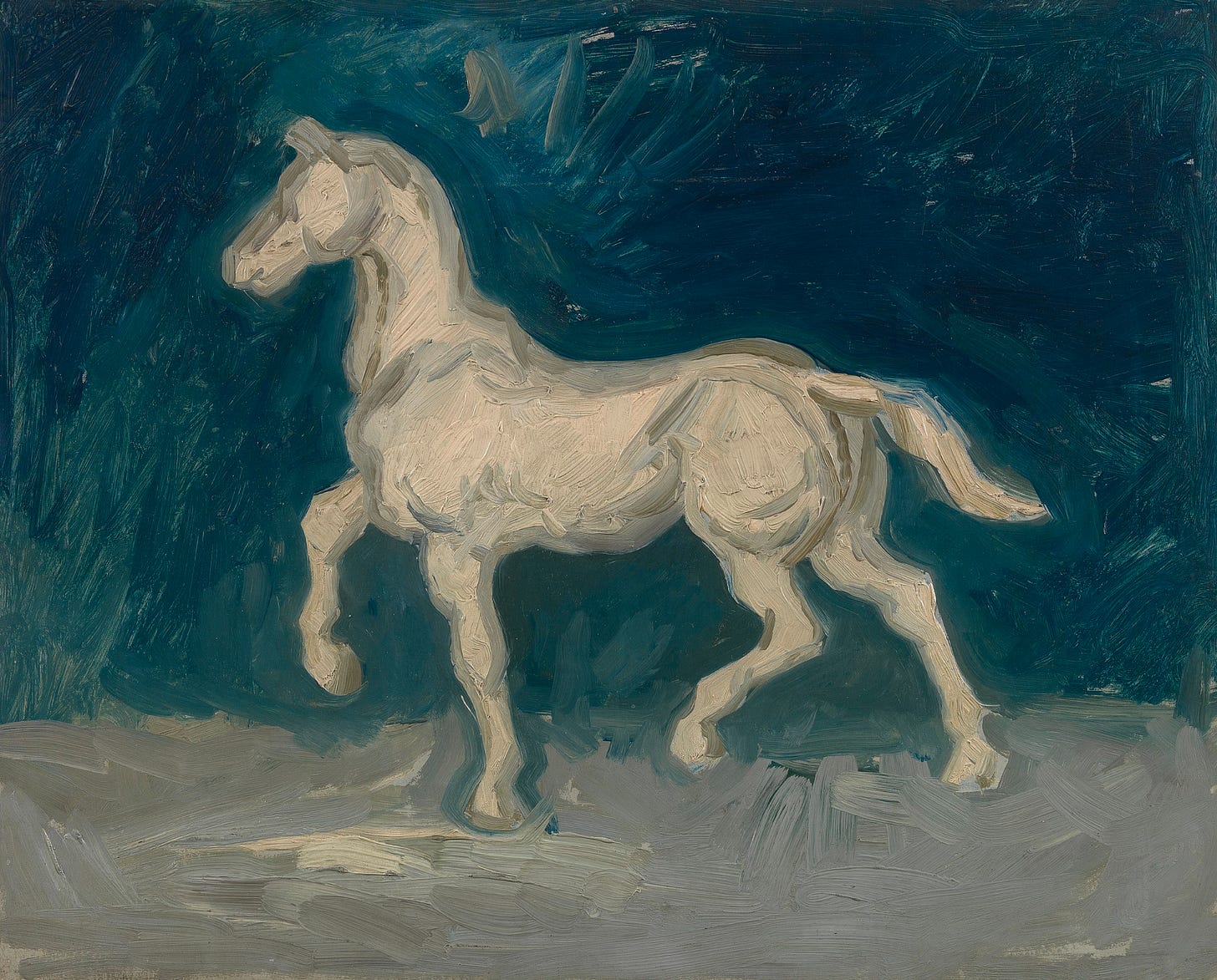
No. 126: To be blunt about it
There’s something to be said for bluntness.
So, I’ll say it.
I’m blunt.
I tend to avoid using too many words if at all possible. I like to end my sentences in odd places. I say my piece, and I’m done, which usually applies to both my writing and my speech, if I can do what I came to do.
To some, it’s weird, the bluntness.
They expect I’ll follow a standard pattern, as they should.
Maybe that’s one of the reasons I don’t.
But also, bluntness is generally good. It cuts to the point. It says the thing. It leaves no room for misunderstanding — or, it leaves lots of room for misunderstanding.
Both cases: good.
Bluntness.
It’s a single flower removed from the bouquet.
Singled out, I focus more closely on details. Each pedal. The green stem. The center bud. The dead bug wedged between layers of violet.
Inside a flower must be the best place to die.
I’ve read some Charles Bukowski, but not enough.
I was reading some of his stuff this morning, and I was stuck by — guess what — his bluntness.
It’s incredibly beautiful.
It’s no bullshit.
It’s night and day from a lot of writing considered canon, which, by contrast, comes across as faker than Barbie’s hair.
Bukowski has said that the world of books — at least, the ones he was pulling from the shelves — differed dramatically from the life he witnessed on the streets, at the racetrack, in life.
That resonates.
But what that seems to miss is the face that each person carries internal worlds as they traipse down the street, place a three-hundred dollar bet on Winner Boy, get dumped by their hooker girlfriend because, due to Winner Boy’s sad performance, they’re out of cash.
Those internal worlds are what a lot of literature speaks to. That’s valuable and immovable and essential. It’s not going anywhere, and may it never.
But thank god for Bukowski, who said fuck that and showed us something different.
Funny thing, though.
His work did what a lot of work doesn’t: depicted the real world. But it still showed the internal world, too.
It did both.
Which, dammit Bukowski.
A true Winner Boy.
Bluntness wins both by depicting the real world and rising above it.
It’s constructively destructive.
If, in conversation, you tell me you’re a business owner, I can say,
Wow. You must be a busy guy. So, what’s the business?
a.k.a. I can give you the softball response you’re expecting and that you’ve answered one hundred times before.
or, I can say
Sounds rough.
Now, it’s on you to fill the space, to give me something more, to respond, in kind, with something honest, different, unique.
Because spare me the formulaic talk.
Likewise, I can write,
He had to mow the lawn. It had been growing for two weeks now and was long and unruly and studded with flowering weeds. It was hot outside and the job sounded awful. Lemonade would have been better, right now. But the lawn. So he put on his shoes, a baseball cap to catch his sweat, and went outside.
Or, I can write,
He had to mow the lawn. He didn’t want to. That was the last thing he wanted to do. It was a hundred out. And humid. But he had to. So he did.
In the first case, I’ve spelled it out for you. Which, yeah, that’s fine.
But in the second, it’s on you, friend, to imagine the scenario, to conceptualize what “He didn’t want to” means in the context of the story. The bluntness gives you the necessary facts of the situation quickly so we can continue to move move move.
It’s efficient.
And it forces something higher, I think.
That, really, is the main thing — the thing that can inspire an entire essay on bluntness.
If I get straight to the point, what’s left?
If we say what we have to say in as few words as possible, what’s left? Where do we go from there? What else do we say? What else happens?
Something better, I think.
Usually.
And it’s for that reason, above all, that I love bluntness.
That’s it.
Because for the love of lemonade, let us get past the first order thought. Let us move on to the second and third and fourth order thoughts. Let us see what’s underneath the surface rather than skipping rocks across it.
By being blunt, we can.
And if not?
We tried. ♦
Weekly Three
HEAR: “Wu Punk” by Georgia Anne Muldrow, an instrumental that will make you want to melt, or create something, or (somehow) both. (YouTube)
READ: A very poignant letter by Vincent van Gogh to his brother Theo. “But one doesn't expect out of life what one has already learned that it cannot give, but rather one begins to see more and more clearly that life is only a kind of sowing time, and the harvest is not here.” (Web Exhibits)
VIEW: My Instagram Reel on my pictorial dictionary. (Instagram)





There is so much power in saying it and stopping. I'm still practicing. When it happens, there is clarity.
This reminds me of the Eddie Murphy movie, "A Thousand Words." He had to learn to cut out all the bull just to get straight to the point of what he actually wanted to say. Even though the movie bombed at the box office, it is my favorite movie of his. His few words at the end of the film speaks volumes. Love this piece,Matt. Thank you for reminding us all, that we can cut through all the noise and just be honest and get straight to the point. Great work! :)